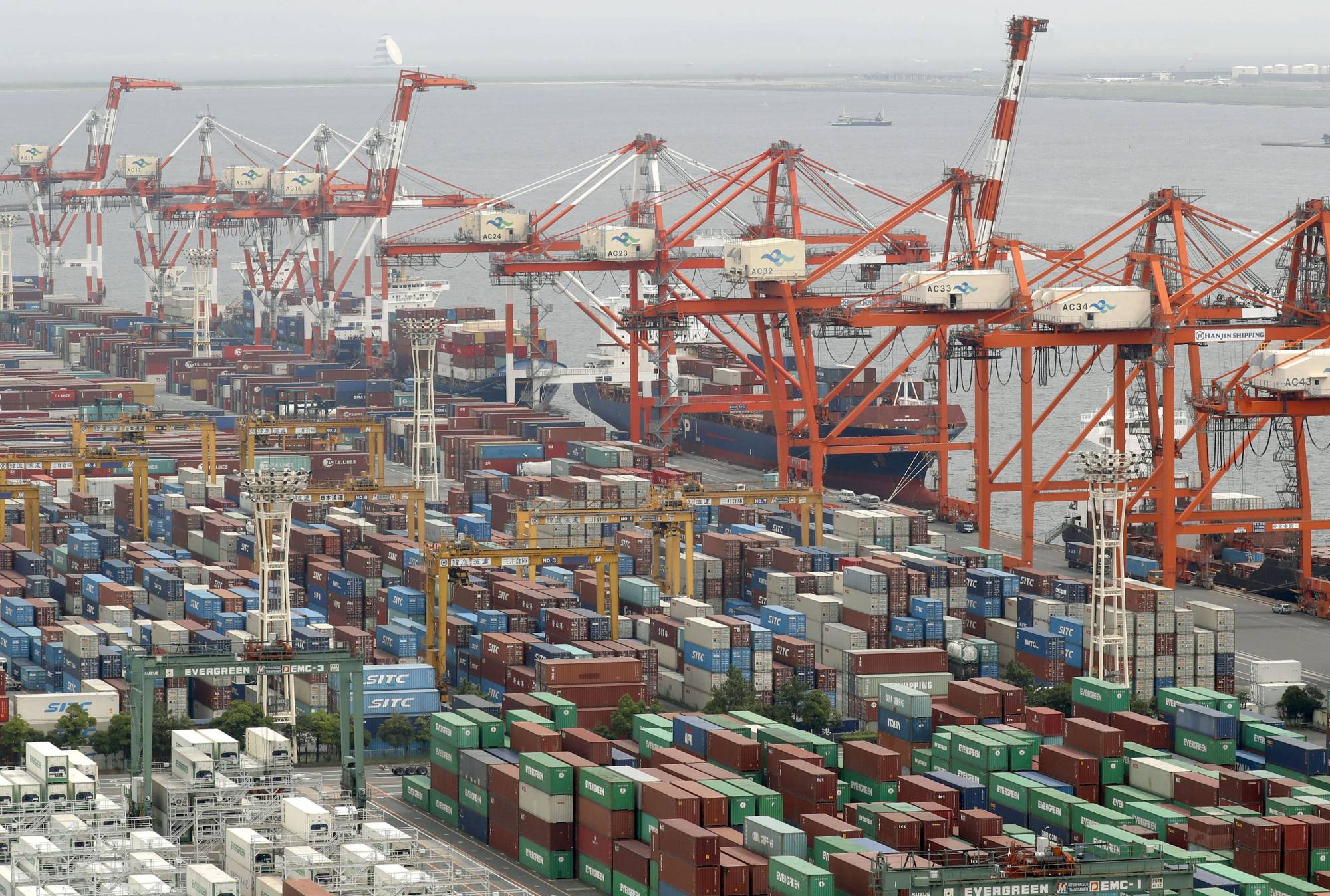Japan posted a current account surplus of ¥1.97 trillion ($18 billion) in March, down 32.1 percent from a year earlier, as exports and the travel balance plunged due to the new coronavirus pandemic, government data showed Wednesday.
The current account marked the 69th straight month of black ink in one of the widest gauges of international trade. Exports fell 12.2 percent from the previous year to ¥6.2 trillion, while the travel surplus plunged 86.5 percent to ¥24.5 billion, according to a preliminary report released by the Finance Ministry.
Japan's travel balance reflects the amount of money foreign tourists use in the country on services and items against the amount Japanese spend abroad. Its surplus declined for the second month with the number of overseas travelers plummeting amid the global virus pandemic.
Among key components, Japan had a goods trade surplus of ¥103.1 billion, down 85.2 percent from the previous year, and a services trade surplus of ¥72 billion, down 77.6 percent.
Exports of cars to the United States, vessels to Singapore and auto parts to China were sluggish as the virus outbreak cut demand and disrupted global supply chains, a Finance Ministry official said. The exports figure for February had seen the first increase in 15 months.
Imports dropped 4.2 percent to ¥6.09 trillion, down for the 11th consecutive month, as the price of coal and liquefied natural gas imports mainly from Australia fell, although their quantities remained nearly unchanged from a year ago.
The country's primary income saw a surplus of ¥2.06 trillion, down 4 percent, due to a decline in dividends received by parent Japanese companies from overseas subsidiaries.




